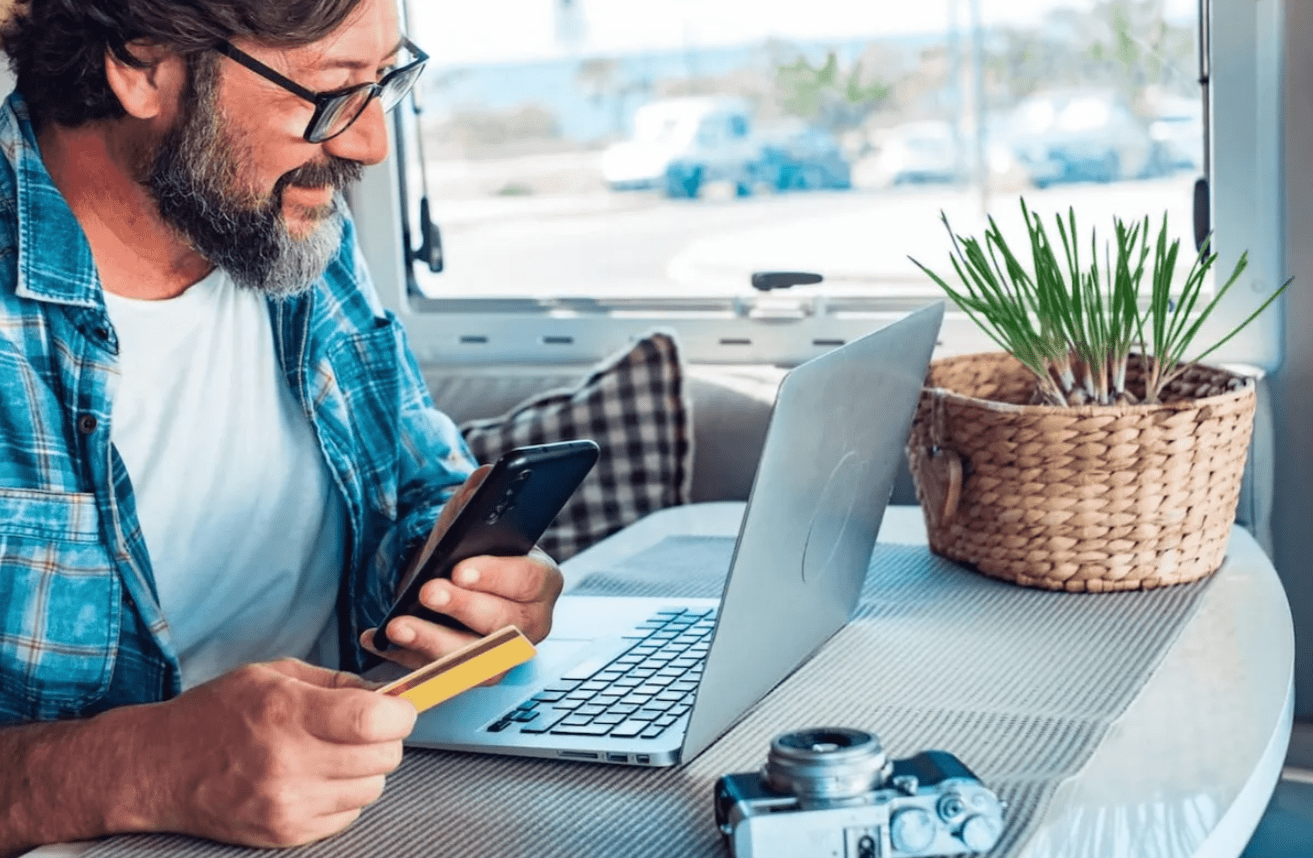How to Budget as a Digital Nomad and Manage Your Expenses

It is undoubtedly among the best, greatest, and most liberating lifestyles possible, but can also be among the most financially challenging also. However, nomadic life without a homestead means you need to have a command of money management to make it a long-term option. Whereas most traditional employees have predictable expenses, digital nomads need to factor ever-changing costs like lodging, travel, work-related expenses, and healthcare.
What Budgeting as a Digital Nomad Really Means [it NOT cut spending]Budgeting as a digital nomad isnuspent about cutting costs – ituscent about smart financial choices that allow you to travel easily, and be financially safe at the same time. This coupled with tracking through your expenses and cutting the undesired costs when able can provide a great structure around your life; allowing you to build a well-planned lifestyle free from too much stress.
It includes setting up your budget, saving, and budgeting as a digital nomad, as well as budgeting and expense management.
1. Evaluate your Income + Create a Budget
Assess how much you earn as well as how much you require to travel. Since digital nomads have quite unpredictable income as compared to traditional office workers, it is all the more important to pay heed to budgeting.
Determine Your Income Sources
- Freelance worker: The earnings of a freelance worker can fluctuate from month to month. Monitor client payment methods (to put aside money for the month where clients may not pay you or not have any clients)
- Remote Salary: If you have a remote job with a consistent income level, budgeting is a little easier because you know what you're going to make.
- Investment, rental properties, online courses, affiliate marketing – all of every sort of passive income can be casa.
Setting a Monthly Budget
The solution is simple — create a realistic monthly budget according to your income and anticipated expenses. So try the 50/30/20 rule:
- 50% to needs (living (rent), eating (take out), traveling (taxi), health care)
- 30% to blow on whatever you want (entertainment, dining out, shopping)
- Lastly, 20% for savings and investments (hey, retirement fund — whats up)
Crafting a proper budget means you will spend within your means and will be able to save up for your next trip!
2. Track Your Expenses Regularly
If you don’t track expenses, you will easily lose control of your money. We know that digital nomads routinely pay in diverse currencies, so this is a huge opportunity for spending tracking.
How to PROPERLY Track Your Expenses
For example, budgeting apps, such as Trail Wallet, Mint, YNAB, and PocketGuard, allow you to record expenses by currency and category.
Use a Spreadsheet — For those who prefer a manual process, keep a simple Google Sheets or Excel template where you log expenses daily or weekly.
Check Your Bank Statements: At the end of each month, take a look at your credit card and bank statements and identify any unnecessary expenses.
Track Your Expenses Spend Majorly in These Categories
- Accommodation — Rent, hotel and Airbnb fees
- Food and dining — groceries, restaurants, coffee shops
- Transportation (flights, trains, taxis, rental cars)
- Coworking & Office Expenses – Coworking space costs, internet, office supplies
- Health and Insurance - Travel insurance, health expenses, gym memberships
- Entertainment and Recreation – Viewing, nightclubs, internet subscriptions
In this way, you can identify spending trends and predict your budget.
3. Opt for budget-friendly places to travel to
The great thing about being a digital nomad is that you can live in places where the cost of living is cheaper. In some cases, enabling you to live life to the fullest, but cheaper.
Digital Nomad Hotspots Without Breaking A Bank
- Southeast Asia — Thailand, Vietnam, Indonesia, Cambodia
- Europe in the East on the map: Georgia, Romania, Bulgaria, Poland
- Latin America: Mexico, Colombia, Peru, Argentina
Where to Identify Affordable Areas
- Compare living costs in different cities using Numbeo or Nomad List.
- Select those locations where rent, food and travel costs 4 to 5 times less than in the home country.
- Rent each place for longer to benefit from cheaper long-term stays.
You can choose places that have a better lifestyle but are cheaper to live in which allows you to spend lesser money as well.
4. Save Money on Accommodation
For digital nomads, one of the biggest expenses can be accommodation. Having an affordable accommodation can do wonders for your pocket.
Ways to Save on Accommodation
- Rent Monthly: Airbnb and local rental platforms usually give promotional rates for monthly rent.
- Look for Coliving Spaces: Coliving spaces are apartments that have been divided into rooms and the rents are more economical than if you were to book an entire place.
- Say You Will Stay for Longer: If you do not care to leave a place for a while, negotiate or rent the place for a while as it will probably be lower in rent.
- House Sitting and Couchsurfing: Sites like TrustedHousesitters let you stay at a place free of charge if you watch over a home.
You can always save money by booking accommodation in advance as we know that long-term rentals are low than the short term.
5. Reduce Transportation Costs
Usually traveling is not cheap and it can pile up quickly. Transport can be quite expensive if you are not careful, try being strategic about it.
Tips to Cut Down Travel Costs
- Use tools such as Google Flights and Skyscanner to book flights well in advance.
- Travel by Budget Airlines and Trains: In countries or continents like you have the trains and low budget airlines, they are indeed cheap as compared to regular airlines.
- Opt for Public Transport: Use buses, metro systems, or rent a bike instead of taxis.
- Slow Travel: Spend longer in one place, cuts down on those costly flights.
It is also helpful to offer flexibility with travel dates and destinations to determine the lowest rates you can find.
6. Dining — Expenses eating out
Dining out is heavy at a price to your pocket. Cooking at home and making wise selections when you dine out can be politically correct quite a bit of money.
Affordable Food Tips
- You Are Able To Prepare Meals: If you rent a place with a kitchen, you could prepare meals for little expense compared to restaurants.
- Eat Like A Local: Street food and local markets usually are less expensive than tourist restaurants.
- Find Meal Deals: Discouts are available for nomads and expats at most cafés and restaurantes.
- And eating in is a great way to make sure you're staying in budget always.
7. Prepare For Emergency Expenses
There might be unforeseen expenses like medical emergencies, stolen items, or last-minute travel changes that can break your budget. A financial safety net is required to ensure you are not caught struggling with what life throws at you during emergencies.
How to Get Ready for Financial Emergencies
- Establish an Emergency Fund: Save at least 3-6 months of expenses in a readily accessible account.
- OR: Take out Travel Insurance: Select an insurance that covers health, robbery and trip cancellations (SafetyWing and World Nomads are great places)
- Another way to keep in mind is to Use a Backup Credit Card: It is always a good idea to have a backup card on hand in case one is lost or if you need to use to counteract any sort of fraud.
- Travel worry-free is still possible if you are financially prepared for emergencies.
Minimize Fees Charged by Banks and Currency Exchange Offices
Conversion fees are one of the most common problems faced by digital nomads who earn in multiple currencies. Selecting the appropriate banking solutions has the potential to save you thousands.
Top Nomad Banks for a nomad bank account
- International Bank Accounts: Banks such as Wise (formerly TransferWise), Revolut, and N26 provide cheap currency exchanges.
- Skip ATM fees: If you need cash, take out big amounts at once to minimize fees or opt for a travel-friendly bank that complaisant free ATM withdrawals.
- Card: Get a no-fee credit card such as the Chase Sapphire or Capital One Venture — no foreign transaction fees.
Reduce banking fees to help you retain money for your needs.
Conclusion
Planning and discipline expectations need to true as budgeting as digital nomad. You can live a worry-free nomadic life as long as you keep track of your expenses, visit cheaper places, cut off unnecessary expenses, and save for emergencies.
Solution: Be proactive, plan your finances with your family, change your cash flow, have a float. If you plan your budget accordingly, you can still travel the world with the same freedom and ease of remote work, but with a budget that takes care of all of your needs, without you having to think about money 24/7.
4o
